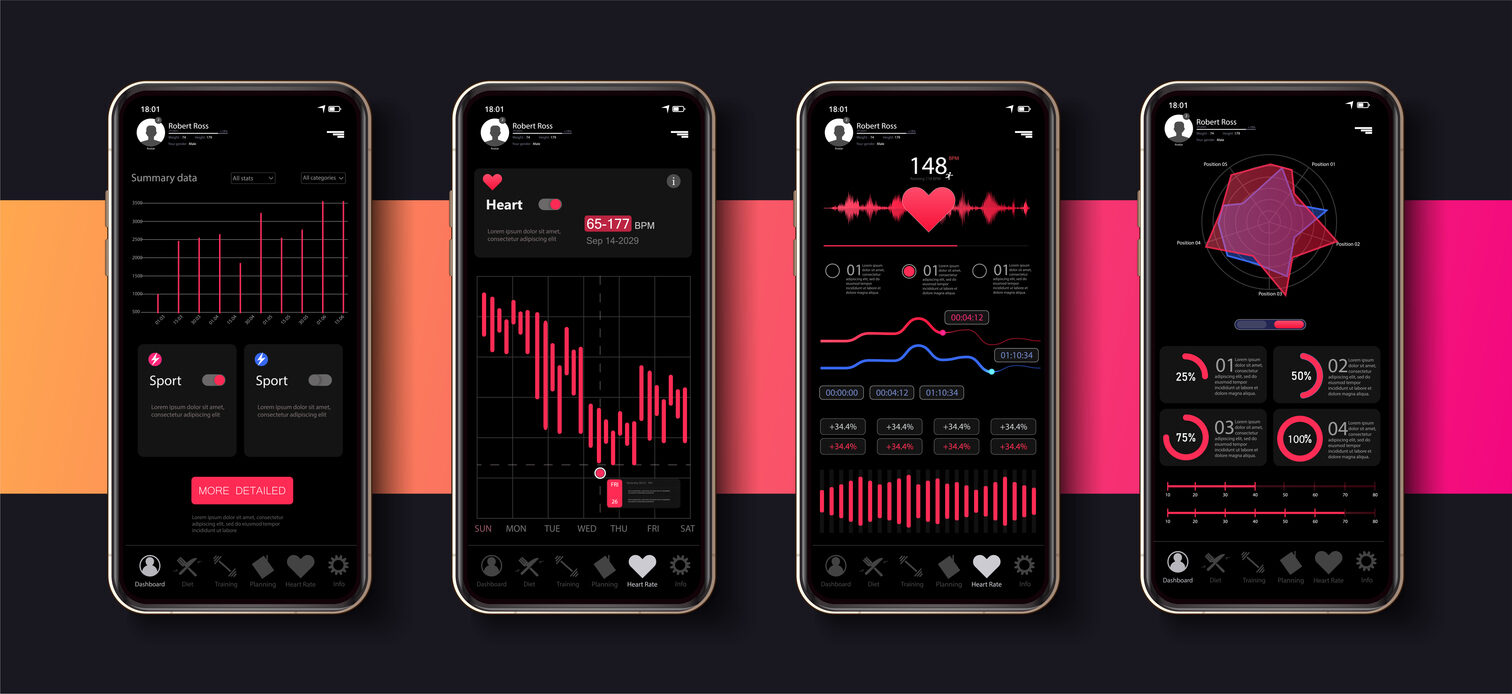Mobile health apps have revolutionized health monitoring by providing real-time, mobile-based services. The market for health apps that are mobile is expected to grow to $236 billion by 2026, indicating their increasing importance in the field of healthcare. Machine learning and artificial intelligence technology are used in these apps to provide individual health tips that can lead to an increase of 64% in health awareness among users.
The benefits of health apps for mobile devices include efficiency and cost-effectiveness, as well as continuous health monitoring. But data privacy is an issue as only 40% of apps complying with current standards for regulatory compliance. As the advancements in wearable technology continues and AI integration grows the potential of mobile apps for health to develop and grow is substantial.
Table of Contents
The Development of Medical Technology
The advancement of technology for health is marked by major advances which have revolutionized the management and delivery of healthcare services. The most significant aspect of this shift is the rise of mobile health apps that have brought new capabilities for monitoring health and wellness.
Over the last 10 years the integration the use of health applications on mobile devices in healthcare systems has significantly progressed, which is a sign of an evolution towards more individual and easily accessible healthcare. Mobile health apps provide the ability to collect and analyze data in real time that allows patients and healthcare providers to keep track of health indicators with greater precision.
Research-based insights show that apps for health have facilitated better patient engagement and have facilitated active health monitoring. The industry estimates suggest that the market for health apps that are mobile will grow to $ 236 billion in 2026 which highlights their increasing importance within the healthcare industry.
As technology for health advances and wellness monitoring is now available on electronic platforms have become an important focal aspect, providing users with the capability to monitor vital data like the heart rate and physical activities as well as glucose levels. Health apps that analyze data enable users to make educated decisions and create an environment of preventative health and early intervention that is vital for improving the overall quality of life.
Well-liked Apps for Mobile Health
Are there any viewed health apps for mobile devices? Some of the most prominent examples are MyFitnessPal, Headspace, and Fitbit.
These platforms demonstrate an increasing trend of incorporating sophisticated features to improve the user experience and encourage engagement. Data-driven insight is utilized by these apps to assist people to manage their health and well-being efficiently.
The features range from personalised fitness tracking and monitoring to mental health care. A consistent high rating of these apps underscore the vital significance of a user-centric interface and user-friendly interfaces to their wide use and continual use.
The Best Health Apps
The rapid development of technology for digital health has led to the creation of a number of highly rated mobile health apps that are designed for monitoring health and wellness. These apps allow for the recording of fitness goals, and offer actionable information about the overall health of a person.
Health management apps have emerged as indispensable tools for people who want to keep track of health-related metrics such as heart rate or the amount of food consumed. Health apps for mobile have a vital role to play in bridge gaps between conventional health care as well as personal management of health.
Advantages for Users
Technology has revolutionized the realm of health management for individuals, through mobile health apps offering many benefits to users.
They have revolutionized personal health by supplying an array of tools to facilitate the management of wellness in a proactive manner. The interaction of users with these apps shows substantial benefits that match modern health concepts.
Constant Gathering of Health Data
Data collection on health status continuously gives an extensive overview of the individual’s health condition by continuously checking various behavioral and physiological parameters in real time. This method goes beyond the fundamental vital indicators such as blood pressure and heart rate and includes additional indicators such as glucose levels, oxygen saturation, and the patterns of activity. Mobile and wearable apps provide seamless data acquisition and capture of vast health data without disrupting everyday activities.
Activity and Fitness Monitoring
The integration of activity and fitness monitoring into mobile health apps can bring significant benefits. Improved health management and user empowerment with instant feedback on data are among these advantages.
Features like step count as well as heart rate monitoring and GPS tracking give users a complete information about their fitness. This comprehensive information helps make informed health decisions.
In addition, the ability to set goals for yourself and receive prompt notifications make these apps effective instruments for increasing motivation to exercise and the adherence to routines for fitness.
Activity Tracking Advantages
The benefits of tracking activity using mobile health applications transform your health monitoring and fitness. Utilizing advanced sensors and algorithms within these apps provides an approach based on data to improve health and well-being.
Activity tracking can provide valuable insights into the daily physical activities that are helping to make informed lifestyle adjustments. The benefits of tracking activity go beyond personal health improvement which contribute to larger public health improvements.
Conclusion
The path of mobile health applications reveals an era where healthcare is more data-driven and easily accessible. What advances will change the management of health? The integration of live monitoring, customized insights and wearable devices are set to transform the way we manage health. However, the challenges of the protection of privacy and security need to be tackled. The potential for mobile health apps to revolutionize the way we monitor and manage our health in a digital world is enormous.




